- Home
- Heather Graham
The Viking's Woman Page 4
The Viking's Woman Read online
Page 4
“I am certain. I have done well. You promised me reward.”
“Aye.”
He smiled. The youth’s startled eyes grew large as he watched the nobleman reach for his sword. He did not have time to cry out; his life was too quickly sliced away. He sank to the ground in a pool of blood.
The younger lord protested with a choking sound. “Was that—God, was that brutality necessary?”
“Aye.” Calmly the elder cleaned the blood from his sword. “Aye, completely necessary. Mind my words. If you would commit treason, friend, leave no clues.”
Ruthlessly he led his horse to step over the body. “Come. We ride to the king.”
2
Rhiannon’s heart hammered, her legs ached, and her lungs were in agony, but still she ran, tearing more and more deeply into the forest, farther and farther away from the town that had been her homeland, her birthright. For all of her life she had been fighting, but she had never come so close to sheer terror and despair as this.
At last she paused, having entered into the forest, which was a sea of green darkness. She knew the area well and welcomed the night. She found a lichen-covered rock and paused, gasping desperately for breath and listening lest the Viking horde be coming at her heels. At last she began to breathe more easily. They did not seem to be coming after her. She was not worth their effort. Perhaps they did not know who she was; perhaps they did not care.
She started to shiver.
He could have killed her. And if he weren’t so grievously wounded, he would have come after her.
A trembling started up inside of her, and she closed her eyes, fighting it. But she could not close her eyes to memory, and she saw the Viking in her mind, blond and powerful, and it seemed that she still breathed in the subtle masculine scent of him, still felt his hands as he touched her ….
She took a ragged breath. He could have killed her. He could have aimed his knife at her heart, but he had not done so. He must have known that she would run, that she would bring a warning to the king. And still he had spared her.
’Twas hardly mercy, she thought. He had been ruthless enough. But what had he meant when he demanded to know what had happened? She swept her arms around herself, wishing that she dared scream aloud with fear and fury and frustration. What had happened? A horde of Vikings had descended and destroyed her home!
She had to keep moving. She had to reach the king.
Rhiannon rose and stumbled onward until she came to the bubbling little brook that crossed through the forestland at this point. She wondered if the Vikings would raze the town. So many were dead. Nobles, carls, and serfs had died alike, with pride, with courage.
Tears welled up in her eyes. Egmund was dead. Dear, loyal Egmund with his drooping mustache and sad brown eyes. She could not bear it. He had been with the Welsh Prince Garth, her father, when he had rescued her mother from the Danes who had sacked the Cornish coast. Garth had been honored by Alfred’s father for the deed, given the fair Allyce as his wife, as well as many shires and fertile lands. Egmund had held Rhiannon as a babe, bounced her upon his knee. And like Rhiannon he had spent his life fighting. Fighting the Vikings, the heinous horde of death.
Kneeling, she dipped her face into the cool, bubbling water. She let it wash over her and cleanse away the mud—and the touch of the Viking. She began to shiver all over again and pushed herself away from the water, forcing herself back to her feet. The rain had stopped at last. Lightning no longer lit up the sky. She had to go on. She had to walk until she could reach Alfred.
She trembled again, so eager was she to reach the king. She could not wait to cast her weary self upon his care and tell him her tale. She did not wish to burden him further, but Alfred was the only one who could exact revenge on the Vikings.
Alfred had been born to the battle with the Norse invader. Even before his birth the Vikings had invaded with deadly menace, besting the men of Dorset, Lincolnshire, East Anglia, Kent, London, Rochester, and Southampton. There had been battles fought against them, and battles won, yet it seemed that the invader had an ever firmer foot upon the ground. Alfred had been the youngest of his father’s sons and had lost three warrior-king brothers before becoming the king himself. He had, upon occasion, paid the Vikings their price for peace, but they were treacherous and broke their truces. Alfred had no recourse but to fight. When the Danish host left Wessex, they went on to Mercia and camped in London. Burhred, the king of Mercia, married to Alfred’s sister, at last gave up the long fight and departed. There was an Englishman—one of the true king’s nobles—on the throne in his place. But in East Anglia, King Edmund had died at the hands of the Danes. In the north they were ruling supreme. Alfred could not fight their numbers in the north. He was determined to keep Wessex, and perhaps from there they could some day fight further.
He fought well, Rhiannon knew. More men had gathered to fight beneath his banner than under that of any other king. He was brave and wise and passionate, and she loved him dearly. Now an army of Danes laid siege to Rochester. Alfred was gathering his forces and preparing to strike, offering aid and succor to the men within the walls of the town who had so bravely held off the enemy throughout the long winter.
We did not hold on at all, she thought. They had fallen within a day. And they’d had no defenses set; the men trained to battle were all with Alfred, for there had been no warning of an attack.
Once again she began to shiver. Rowan was with the king. Thank God he had not been with her, for he would never have surrendered to the invaders and he would have died. Too many others had been taken from her. Her father had died in battle with Alfred against Gunthrum; her mother had soon followed him to the grave. So many of her people fell to the Viking blade, or so it seemed, and she could not bear it if Rowan were to die too.
Rhiannon began to walk more swiftly. On foot, it would take her days to reach the king, she realized. She had meant to escape on horseback, but the Viking lord had caused her to change her plans. She’d had no chance to do anything but flee. She had no horse and was weary and sad, but she had to stumble onward. She didn’t dare stay near the Vikings.
She started walking, hugging her arms about her as she trembled anew. She didn’t want to be caught by the towering blond invader. His face was still too clear in her memory, the rugged face with the ice-cold, savage blue eyes. His words of warning echoed in her mind and caused her to quicken her pace. She did pray earnestly that she would never meet him again.
She remembered him then as she had seen him first from the parapets, even as the host of death had borne down upon them. She had seen him standing there, as if not even nature’s fiercest bolt of lightning could strike him down. Insolent, arrogant, he brought destruction to those she cared for. She had wanted so desperately for him to die; she had sensed that without him his men would falter.
He had even stood still while her arrow had aimed for his heart, but at the last second he had stepped aside and thus lived. She despised his pride and his supreme confidence, and the bloodshed he had brought to her home. She should have run more quickly, but she had seen him in the yard and the horror of death had been with her; she had wanted, desperately, to kill him.
She had come so close to death herself!
A heated trembling swept through her, and she remembered the sheer towering size and fury of the Norseman. His hand upon her had been like a manacle, his muscle had burned against her and into her, and she had never known such vehement hatred or such terror. She would never forget those eyes. Ice and fire, they seared and they scorched, seemed to rape her very soul. Because of him, a town lay in ruin, people made slaves. Egmund lay in a pool of blood, along with dear Lord Wilton—her champion, like Egmund, for years. Brave Thomas was dead too. And so many others.
She paused again, clutching her stomach, fighting the pain that seized her. She gazed up at the smoldering heavens and prayed that Adela had escaped inland. Adela was her cousin, the widow of a noble thane of Wessex and ever with her now—her s
ervant, her friend. Adela could not have survived the cruelty of the Norsemen, Rhiannon was certain.
“By all the saints and Father in Heaven,” Rhiannon prayed, “see her safe!”
She paused in sudden panic, hearing a rustling from the brush ahead, to her left. Her heart raced and she dropped down upon her knee, seeking shelter behind an oak. Fear seized her, and all that she could see before her was his face … muddied and covered with the coarse flour but hard and chilling and striking still. She felt the sheer power of his touch, the vibrancy of his barbarously muscled form. “Pray,” he had told her. “Pray that we do not meet again ….”
A scream played against her throat as a mad thrashing sounded. Hell had come alive in those bushes. Her breath faltered.
Then a sad-looking roan horse tripped its way out of the bushes.
Rhiannon burst into laughter. Her laughter came more quickly, and then she burst into tears.
So many were dead! The Viking had cost her everything, and she could not even go back, could not offer her good friends and companions and champions a Christian burial. The vultures and wolves would come to feast upon them.
The roan stared at her as if she had gone mad, and she did indeed wonder if the Danes had not at last made her insane. She staggered back to her feet and realized that she needed the roan. With the horse, possibly she could reach Alfred by morning.
She called out to the animal. It had no intention of bolting. It had come from the battle and its reins trailed upon the ground.
Rhiannon wondered who had ridden the horse and had died. The saddle was slashed and torn. Gritting her teeth lest she start crying again, Rhiannon freed the cinch and cast the saddle into the bushes, then lifted the hem of her tunic and vaulted onto the roan’s back. Night was falling, and yet it mattered little. She would have to pray that the moon would guide her, for she could not stop.
As the roan moved contentedly along, Rhiannon thought of the years gone by. She’d had to flee London once when her mother and father still lived, for the Danes had been close. She’d been sent from Alfred’s manor and Waringham, and she had run once before from the coast, but that time the invaders had been a small party of foragers in three ships, and her father and Egmund and Wilton had slain them all and sent their boats back to sea, afire. She had known fear before. And there had always been danger, enough that her father had determined she should learn something of archery and swordplay. With him she had always hunted boar and deer in the forest, with falcons and hawks. But it was at archery that she excelled. Her father had boasted that she could thread a sewing needle from a hundred paces, and though his men had laughed, they had all known that it was not far from the truth. She could hit almost any target.
Until today, when it had mattered so desperately.
She wondered then, bitterly, why her arrows had not hit home.
Or why the Viking had thrown his dagger so as not to slay her. She knew instinctively that if he had wanted to kill her, she would be dead.
She gave a deep sigh. Night was falling. She did not want to think about the fair-haired giant anymore, and she would not. She would not tremble, and she would not remember the heat or the strength of him, or the danger in his ice-blue eyes.
Pray, milady … that we do not meet again ….
An owl shrieked in the night. Rhiannon nearly fell from the horse, then she caught her seat again. The moon was rising. It would light her way and she would not stop.
But she was exhausted and heart-weary, and she suddenly felt terribly, terribly alone. She could not help but remember when they had brought her father’s body to her mother. Rhiannon had seen his face, his handsome, proud face, reduced to the ashen pallor of death. She had seen the blood dried upon his temple, and the massive gash from the Danish battle-ax that had split his skull in two. She had screamed, held his bloody head, and crooned to him as though to revive him. Then her mother had pulled her away at last, and she had nearly ceased to believe that there could be a God in heaven.
And now Egmund, Wilton, and Thomas. And so many others.
Rhiannon threw back her head and screamed, and the heartbreaking sound was terrible. They would take no more from her. She swore it. They would take no more from her—ever again. She would die first.
Alfred, King of Wessex, paused as he walked from the chapel to the manor. He stared up at the morning sky. The rain had stopped, and it seemed that the crimson streaks of morning painting the sky were like a portent of blood. He was a pious man, a great believer in the one and only Catholic church of Christ, but this morning the sky seemed an ancient, pagan warning.
He sighed. He was not ready to return to the house. To see his wife’s face, to listen to the children. To have the children see him and stop their laughter and grow tense.
He wound his fingers tightly into his fists. God in Heaven, in Your infinite mercy, let this battle that comes be the one to tame the beast that plagues.
He could not remember when the Danes did not control his life. His earliest memory of childhood was his pilgrimage to Rome, a journey taken by a four-year-old because his father and brothers could not be spared from battle. And now they were gone. All gone. His father, three older brothers. None had had the opportunity to grow old.
There was a natural seat, formed from ancient rock, between the wooden chapel and the long manor house. Alfred sat there and realized that his fingers were still clenched into fists.
He had battled the Danes first with his brother, and when he had died, Alfred had been twenty-one. A young man, with a young wife and a child due. Now that child was nearly fifteen, and Alfred was grateful that his firstborn had been a girl and that her coming of age would not prepare her for this endless war and for death. But a son had followed his daughter, and he would come of age soon enough.
He stared up at the sky and wondered at the message in the bloody-looking streaks. What had happened, or what was to come? Though he hadn’t the fey instincts of the Celtish folk, he knew that England herself still hovered sometimes on the verge of paganism and that the first coming of the Viking had been foretold in omens of doom. Druids still roamed the forests, and despite their Christianity, most of his people were as superstitious as the pagan Danes. Something was to come.
He prayed again. He prayed that the sign meant victory at last. God had granted him many victories. Alfred knew that men hailed him as the greatest king since the legendary Arthur; he had bested his enemy in skirmishes many times. He was king, and men bowed down to him and fought for his honor. He wanted more. He wanted peace. He wanted England to be a place of learning, and he wanted his children to read and to write, and to study with scholars from all over the world. He had not read himself until he was twelve years old, and though he had been very young when his mother had died, he had never forgotten how she had read to him, how her voice had been a melody, laughing and tripping over the words in a poem. Time had hampered his study, but he had learned to read before his brothers. He had loved learning and craved it for Wessex. He needed peace to achieve his goal. He was thirty-six. Not a young man anymore. But not an old one. There could be long years ahead of him. Time to do so many things. English craftsmen were known for their work in metal and stone; beautiful jewelry was made here. Once English monks had toiled in the monasteries, creating works of grace and beauty. Now the monasteries were plundered, and all too often precious metals and stones were taken, along with anything else of value. An Englishman was lucky to hold to his piece of earth.
Before the stone Alfred fell down upon his knees again, though he had just come from Mass. He picked up a handful of dirt and stared at it. “God of my fathers, let me tear the Dane down this time! Let me strike him from my land and force him to see the true way of Thy light!”
Even as he spoke, he heard the earth tremble. Allen of Kent, one of his most entrusted retainers, was racing toward him. Alfred came quickly to his feet, and Allen dismounted from his horse and dropped down before the warrior king. Alfred knew it to be bad tid
ings.
“Get up, Allen, and tell me. What is it? Did the Irish prince change his mind and refuse to come?” The sky had warned him. He waited for what would come.
“Oh, no, my king. He came, and ’tis disaster that he did. No message reached the coast. The people thought themselves under siege and tried to strike the first blows. The Lady Rhiannon ordered an attack. The Irish prince received no welcome but a barrage of arrows.”
Pain searing his heart, Alfred took Allen fiercely by the shoulders. “How do you know this?”
“I was riding to the Lady Rhiannon’s and met a survivor on the way, trying to make his way here to you.” Allen’s eyes would not remain on the king. Alfred wondered what the man was hiding, then he thought that Allen lowered his gaze with misery and with fear for Rhiannon.
“And it is true, you are certain?”
“Aye, I am certain. The town is nearly razed.”
“It would be no less,” the king said. He had taken a beast by the tail—a civilized beast, he had believed. But he knew the reputation of the man, and he prayed that the repercussions could be limited to what had already occurred. Eric of Dubhlain could well be marching on Wessex right now, his battle cry for vengeance. The Irish prince would assume that the King of Wessex had betrayed him. Had Rhiannon betrayed Alfred? Impossible! Alfred wondered in his heart about Rhiannon, worrying about what had happened, but he spoke to Allen with expediency as the king. He had no choice. He was a king before all else. There was only one way to hold some part of Britain for the Saxon people.
“Where is Eric now?”
“Taken over the town.”
“He has not moved inland? How can you know?”
“An ominous silence comes from the town. I know, sire, for I rode toward the coast to see for myself what had happened before riding swiftly to you.”
Alfred briefly thanked God that the Irish Viking was not set upon instant retribution. Then he asked about Rhiannon. “My cousin?”

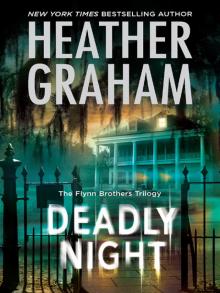 Deadly Night
Deadly Night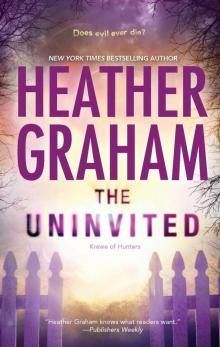 The Uninvited
The Uninvited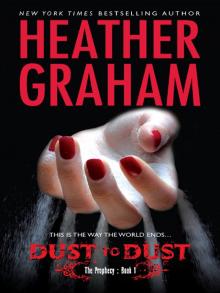 Dust to Dust
Dust to Dust Heart of Evil
Heart of Evil A Perfect Obsession
A Perfect Obsession The Keepers
The Keepers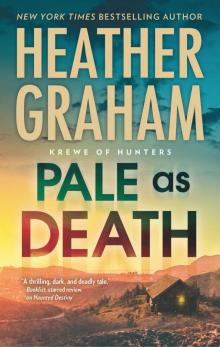 Pale as Death
Pale as Death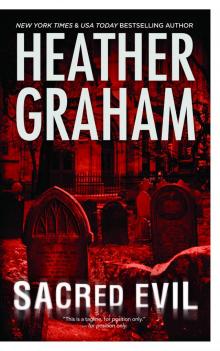 Phantom Evil
Phantom Evil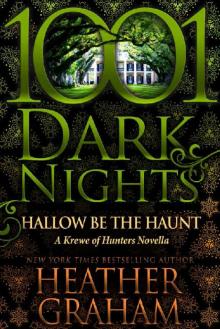 Hallow Be the Haunt
Hallow Be the Haunt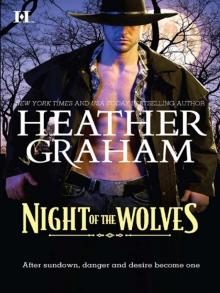 Night of the Wolves
Night of the Wolves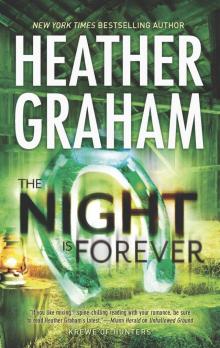 The Night Is Forever
The Night Is Forever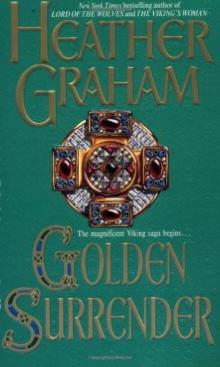 Golden Surrender
Golden Surrender Kiss of Darkness
Kiss of Darkness Beneath a Blood Red Moon
Beneath a Blood Red Moon A Dangerous Game
A Dangerous Game Ghost Shadow
Ghost Shadow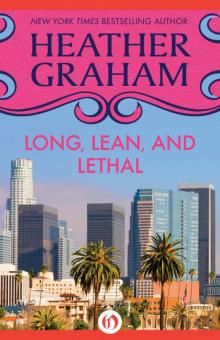 Long, Lean, and Lethal
Long, Lean, and Lethal Fade to Black
Fade to Black The Rising
The Rising And One Wore Gray
And One Wore Gray Rebel
Rebel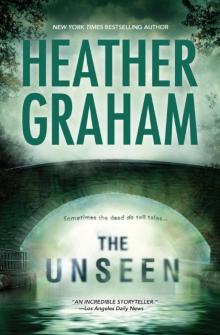 The Unseen
The Unseen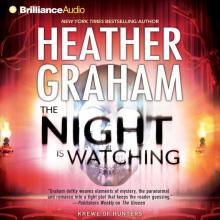 The Night Is Watching
The Night Is Watching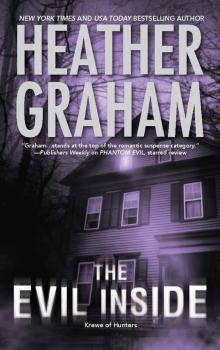 The Evil Inside
The Evil Inside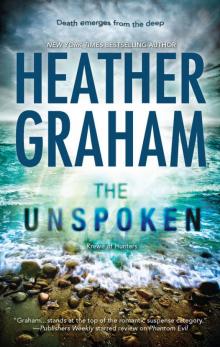 The Unspoken
The Unspoken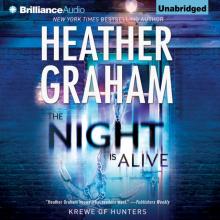 The Night Is Alive
The Night Is Alive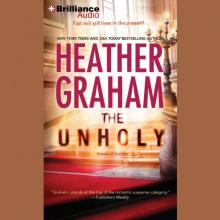 The Unholy
The Unholy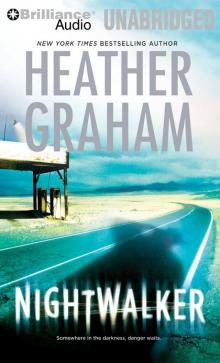 Nightwalker
Nightwalker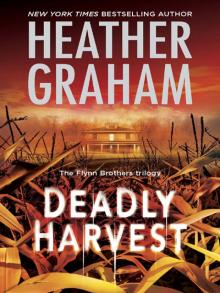 Deadly Harvest
Deadly Harvest An Angel for Christmas
An Angel for Christmas A Pirate's Pleasure
A Pirate's Pleasure American Drifter
American Drifter Realm of Shadows
Realm of Shadows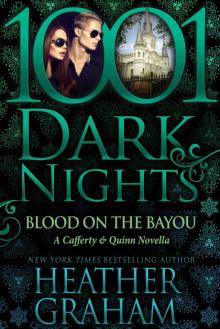 Blood on the Bayou
Blood on the Bayou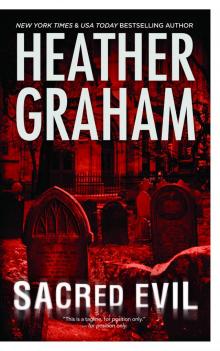 Sacred Evil
Sacred Evil Dying to Have Her
Dying to Have Her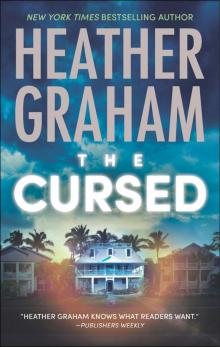 The Cursed
The Cursed Captive
Captive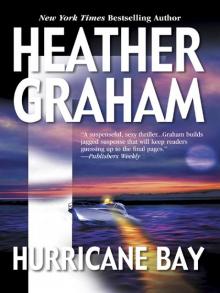 Hurricane Bay
Hurricane Bay Drop Dead Gorgeous
Drop Dead Gorgeous Ghost Memories
Ghost Memories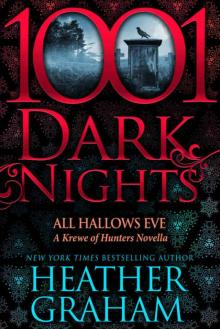 All Hallows Eve
All Hallows Eve Dying Breath
Dying Breath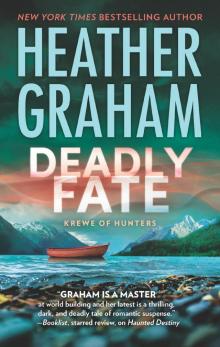 Deadly Fate
Deadly Fate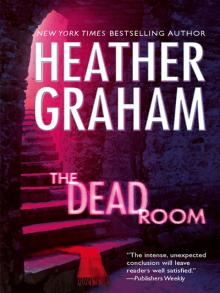 The Dead Room
The Dead Room Lord of the Wolves
Lord of the Wolves Ghost Night
Ghost Night Ghost Walk
Ghost Walk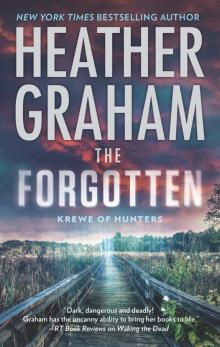 The Forgotten
The Forgotten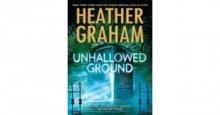 Unhallowed Ground
Unhallowed Ground One Wore Blue
One Wore Blue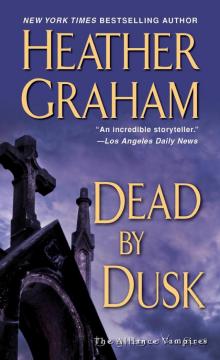 Dead By Dusk
Dead By Dusk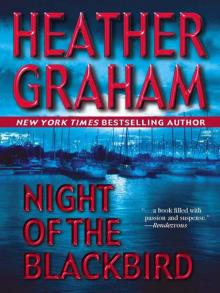 Night of the Blackbird
Night of the Blackbird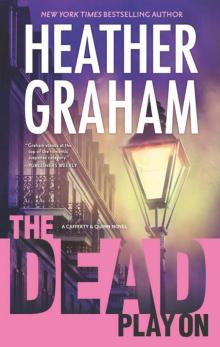 The Dead Play On
The Dead Play On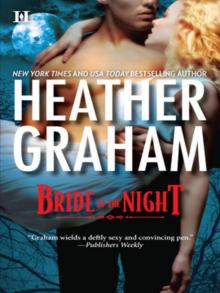 Bride of the Night
Bride of the Night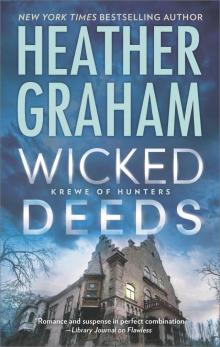 Wicked Deeds
Wicked Deeds The Forbidden
The Forbidden Triumph
Triumph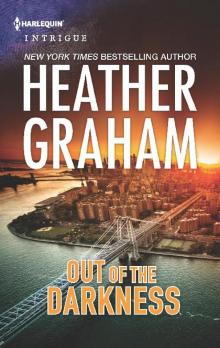 Out of the Darkness
Out of the Darkness Love Not a Rebel
Love Not a Rebel The Last Noel
The Last Noel Tall, Dark, and Deadly
Tall, Dark, and Deadly The Death Dealer
The Death Dealer Dead on the Dance Floor
Dead on the Dance Floor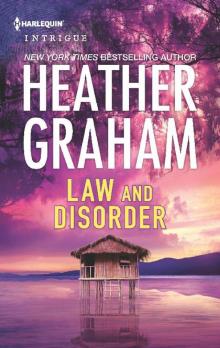 Law and Disorder
Law and Disorder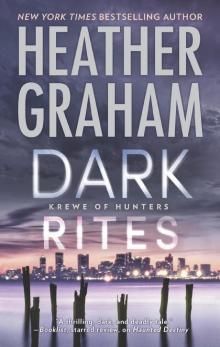 Dark Rites
Dark Rites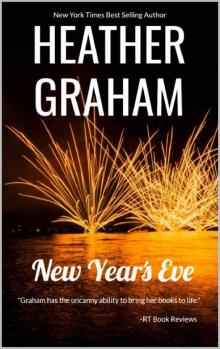 New Year's Eve
New Year's Eve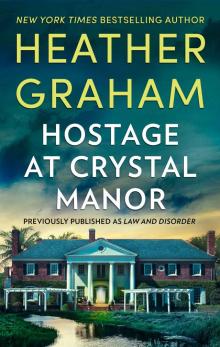 Hostage At Crystal Manor
Hostage At Crystal Manor And One Rode West
And One Rode West Home in Time for Christmas
Home in Time for Christmas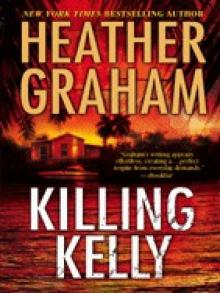 Killing Kelly
Killing Kelly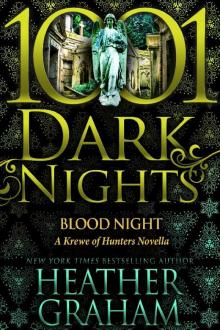 Blood Night
Blood Night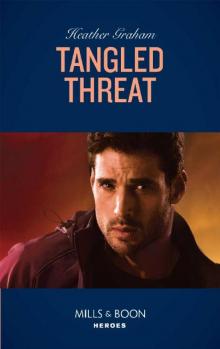 Tangled Threat (Mills & Boon Heroes)
Tangled Threat (Mills & Boon Heroes)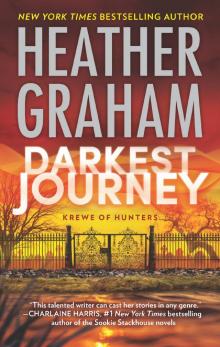 Darkest Journey
Darkest Journey Glory
Glory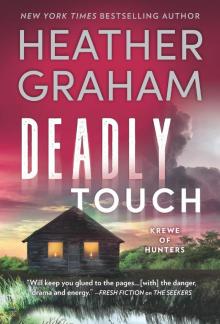 Deadly Touch
Deadly Touch An Unexpected Guest
An Unexpected Guest Night of the Vampires
Night of the Vampires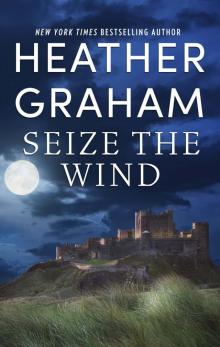 Seize the Wind
Seize the Wind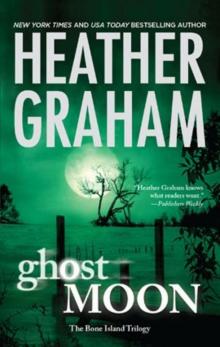 Ghost Moon
Ghost Moon The Vision
The Vision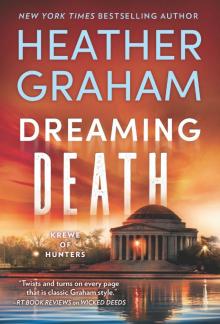 Dreaming Death
Dreaming Death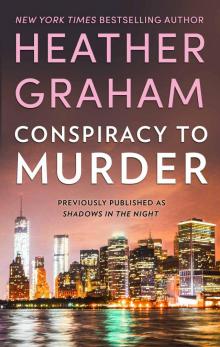 Conspiracy to Murder
Conspiracy to Murder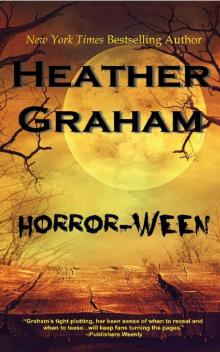 Horror-Ween (Krewe of Hunters)
Horror-Ween (Krewe of Hunters)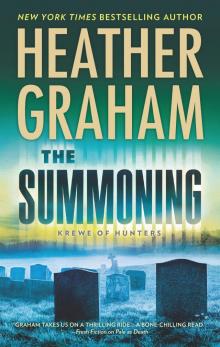 The Summoning
The Summoning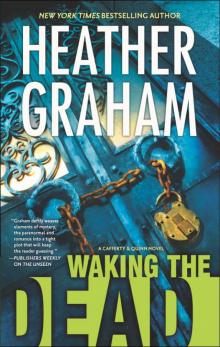 Waking the Dead
Waking the Dead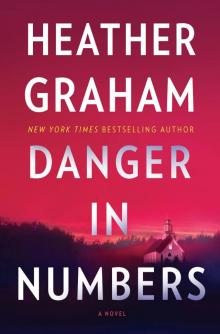 Danger in Numbers
Danger in Numbers The Hidden
The Hidden Sweet Savage Eden
Sweet Savage Eden Tangled Threat ; Suspicious
Tangled Threat ; Suspicious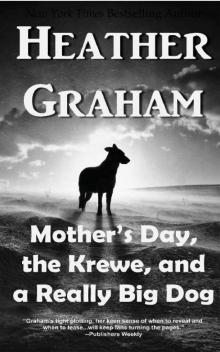 Mother's Day, the Krewe, and a Really Big Dog
Mother's Day, the Krewe, and a Really Big Dog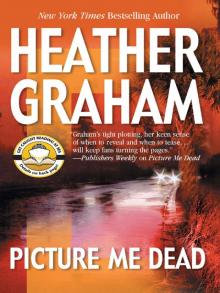 Picture Me Dead
Picture Me Dead The Killing Edge
The Killing Edge St. Patrick's Day
St. Patrick's Day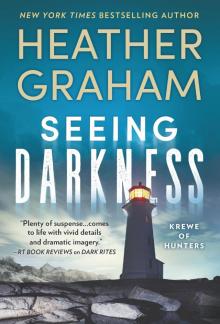 Seeing Darkness
Seeing Darkness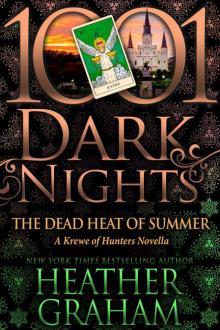 The Dead Heat of Summer: A Krewe of Hunters Novella
The Dead Heat of Summer: A Krewe of Hunters Novella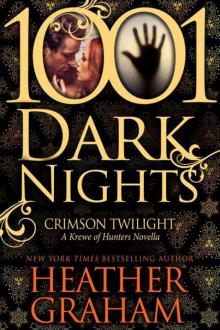 Crimson Twilight
Crimson Twilight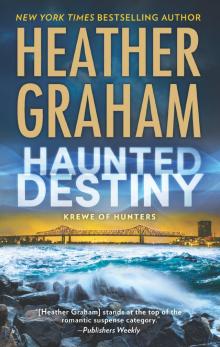 Haunted Destiny
Haunted Destiny Devil's Mistress
Devil's Mistress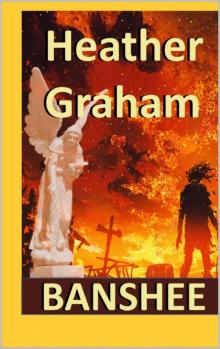 Banshee
Banshee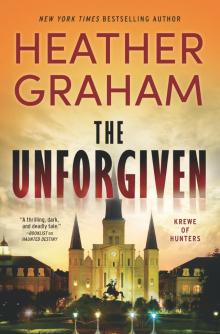 The Unforgiven
The Unforgiven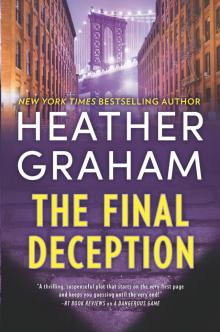 The Final Deception
The Final Deception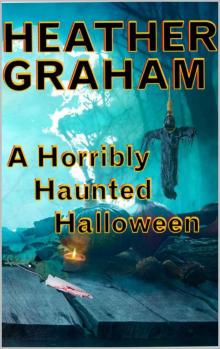 A Horribly Haunted Halloween
A Horribly Haunted Halloween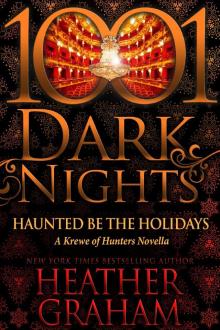 Haunted Be the Holidays
Haunted Be the Holidays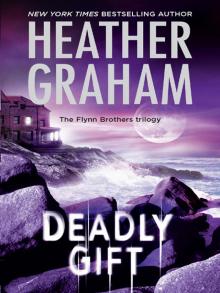 Deadly Gift
Deadly Gift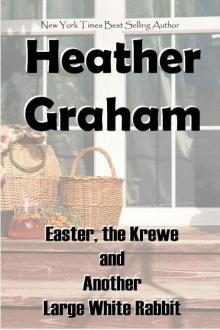 Easter, the Krewe and Another Large White Rabbit
Easter, the Krewe and Another Large White Rabbit Haunted
Haunted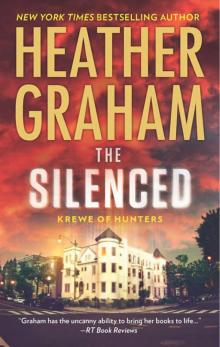 The Silenced
The Silenced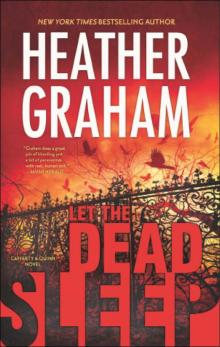 Let the Dead Sleep
Let the Dead Sleep Christmas, the Krewe, and Kenneth
Christmas, the Krewe, and Kenneth Big Easy Evil
Big Easy Evil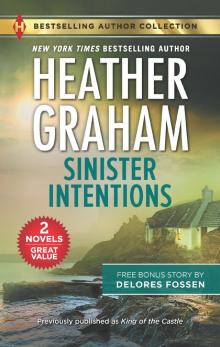 Sinister Intentions & Confiscated Conception
Sinister Intentions & Confiscated Conception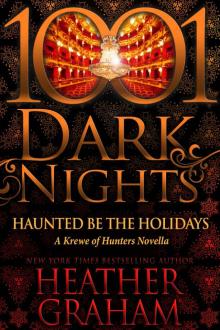 Haunted Be the Holidays: A Krewe of Hunters Novella
Haunted Be the Holidays: A Krewe of Hunters Novella Blood Red
Blood Red A Perilous Eden
A Perilous Eden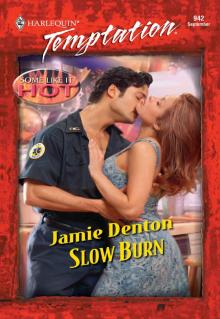 Slow Burn
Slow Burn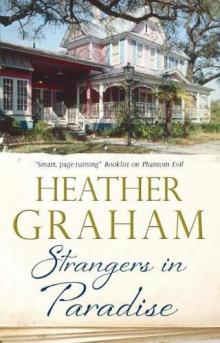 Strangers In Paradise
Strangers In Paradise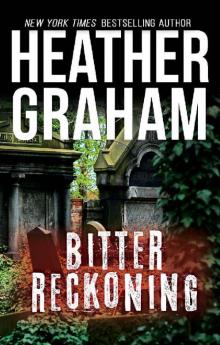 Bitter Reckoning
Bitter Reckoning Krewe of Hunters, Volume 1: Phantom Evil ; Heart of Evil ; Sacred Evil ; The Evil Inside
Krewe of Hunters, Volume 1: Phantom Evil ; Heart of Evil ; Sacred Evil ; The Evil Inside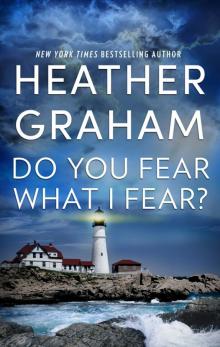 Do You Fear What I Fear?
Do You Fear What I Fear?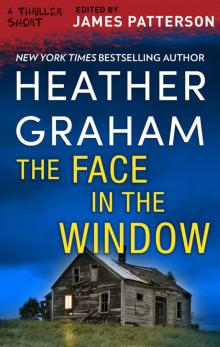 The Face in the Window
The Face in the Window Krewe of Hunters, Volume 3: The Night Is WatchingThe Night Is AliveThe Night Is Forever
Krewe of Hunters, Volume 3: The Night Is WatchingThe Night Is AliveThe Night Is Forever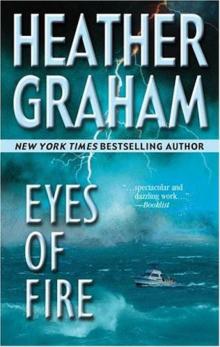 Eyes of Fire
Eyes of Fire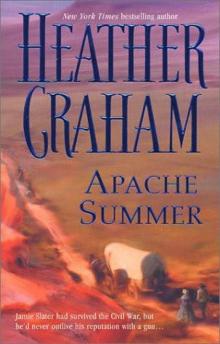 Apache Summer sb-3
Apache Summer sb-3 Sensuous Angel
Sensuous Angel In the Dark
In the Dark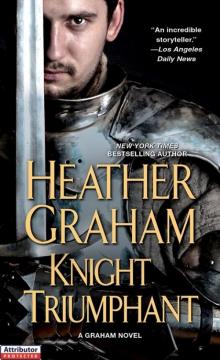 Knight Triumphant
Knight Triumphant Hours to Cherish
Hours to Cherish Tender Deception
Tender Deception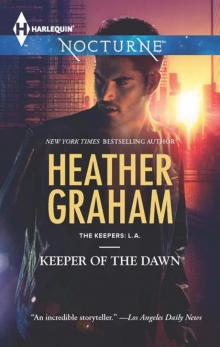 Keeper of the Dawn tkl-4
Keeper of the Dawn tkl-4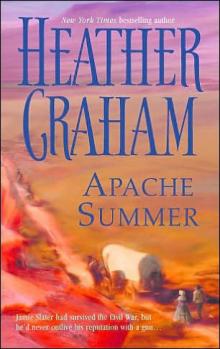 Apache Summer
Apache Summer Between Roc and a Hard Place
Between Roc and a Hard Place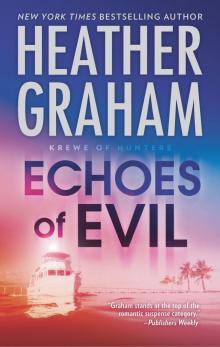 Echoes of Evil
Echoes of Evil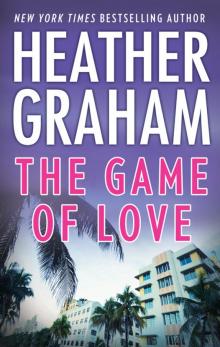 The Game of Love
The Game of Love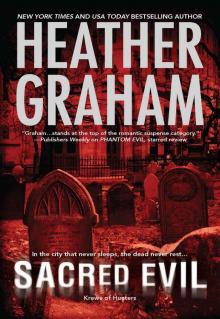 Sacred Evil (Krewe of Hunters)
Sacred Evil (Krewe of Hunters) Bougainvillea
Bougainvillea Tender Taming
Tender Taming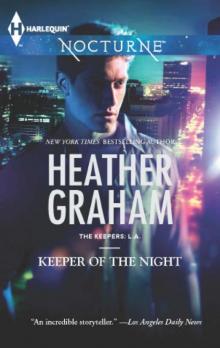 Keeper of the Night (The Keepers: L.A.)
Keeper of the Night (The Keepers: L.A.)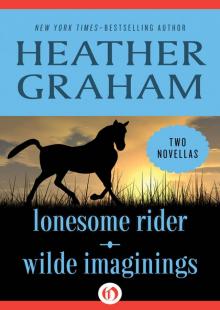 Lonesome Rider and Wilde Imaginings
Lonesome Rider and Wilde Imaginings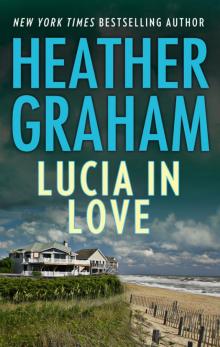 Lucia in Love
Lucia in Love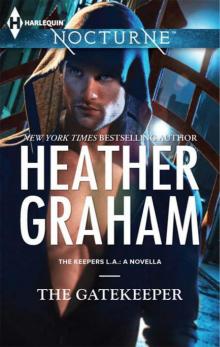 The Gatekeeper
The Gatekeeper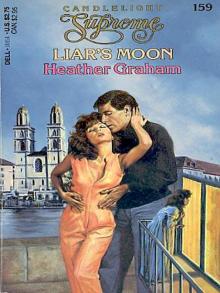 Liar's Moon
Liar's Moon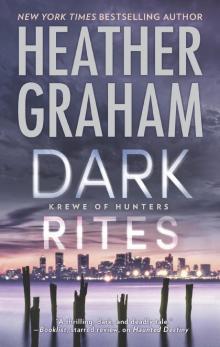 Dark Rites--A Paranormal Romance Novel
Dark Rites--A Paranormal Romance Novel A Season for Love
A Season for Love Krewe of Hunters, Volume 6: Haunted Destiny ; Deadly Fate ; Darkest Journey
Krewe of Hunters, Volume 6: Haunted Destiny ; Deadly Fate ; Darkest Journey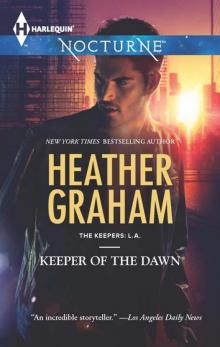 Keeper of the Dawn (The Keepers: L.A.)
Keeper of the Dawn (The Keepers: L.A.)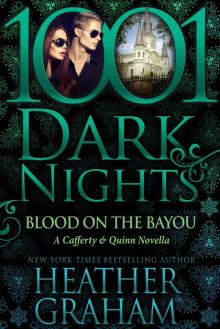 Blood on the Bayou: A Cafferty & Quinn Novella
Blood on the Bayou: A Cafferty & Quinn Novella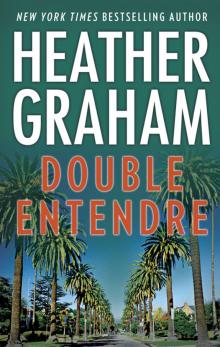 Double Entendre
Double Entendre A Perfect Obsession--A Novel of Romantic Suspense
A Perfect Obsession--A Novel of Romantic Suspense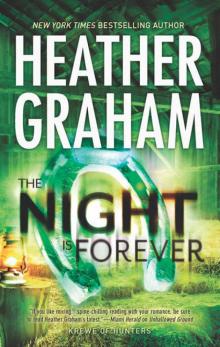 The Night Is Forever koh-11
The Night Is Forever koh-11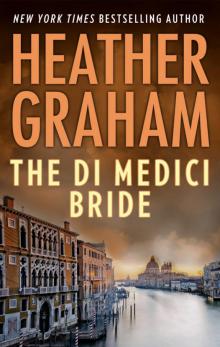 The Di Medici Bride
The Di Medici Bride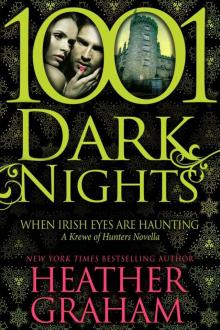 When Irish Eyes Are Haunting: A Krewe of Hunters Novella
When Irish Eyes Are Haunting: A Krewe of Hunters Novella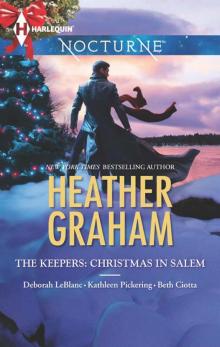 The Keepers: Christmas in Salem: Do You Fear What I Fear?The Fright Before ChristmasUnholy NightStalking in a Winter Wonderland (Harlequin Nocturne)
The Keepers: Christmas in Salem: Do You Fear What I Fear?The Fright Before ChristmasUnholy NightStalking in a Winter Wonderland (Harlequin Nocturne) Never Fear
Never Fear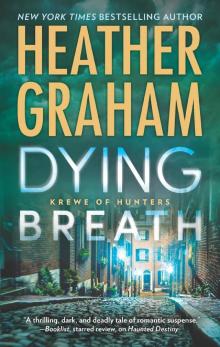 Dying Breath--A Heart-Stopping Novel of Paranormal Romantic Suspense
Dying Breath--A Heart-Stopping Novel of Paranormal Romantic Suspense If Looks Could Kill
If Looks Could Kill This Rough Magic
This Rough Magic Heather Graham's Christmas Treasures
Heather Graham's Christmas Treasures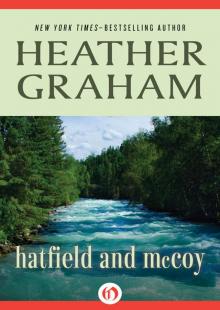 Hatfield and McCoy
Hatfield and McCoy The Trouble with Andrew
The Trouble with Andrew Never Fear - The Tarot: Do You Really Want To Know?
Never Fear - The Tarot: Do You Really Want To Know?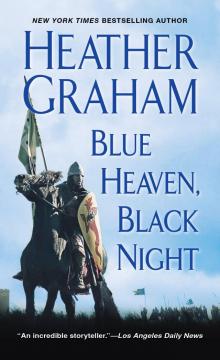 Blue Heaven, Black Night
Blue Heaven, Black Night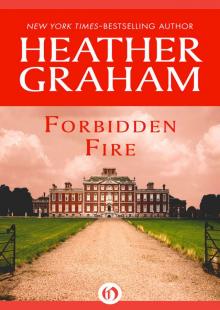 Forbidden Fire
Forbidden Fire Come the Morning
Come the Morning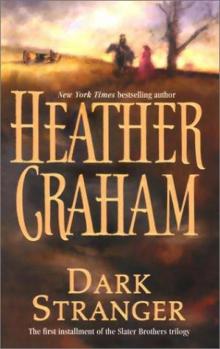 Dark Stranger sb-4
Dark Stranger sb-4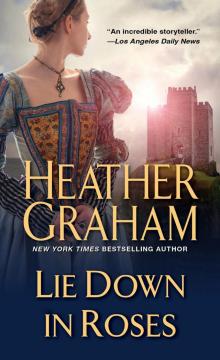 Lie Down in Roses
Lie Down in Roses Red Midnight
Red Midnight Krewe of Hunters Series, Volume 5
Krewe of Hunters Series, Volume 5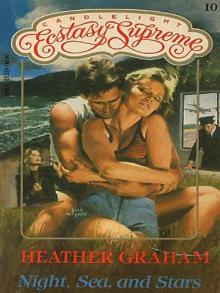 Night, Sea, And Stars
Night, Sea, And Stars Snowfire
Snowfire Quiet Walks the Tiger
Quiet Walks the Tiger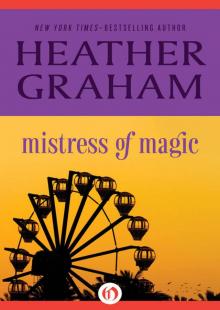 Mistress of Magic
Mistress of Magic For All of Her Life
For All of Her Life Runaway
Runaway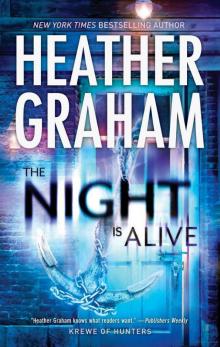 The Night Is Alive koh-10
The Night Is Alive koh-10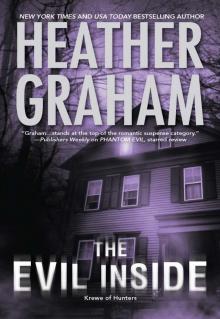 The Evil Inside (Krewe of Hunters)
The Evil Inside (Krewe of Hunters)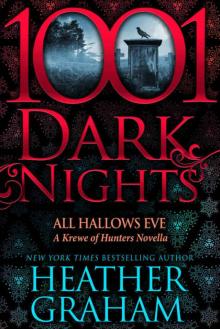 All Hallows Eve: A Krewe of Hunters Novella (1001 Dark Nights)
All Hallows Eve: A Krewe of Hunters Novella (1001 Dark Nights)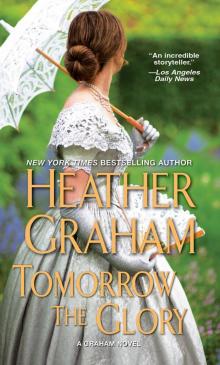 Tomorrow the Glory
Tomorrow the Glory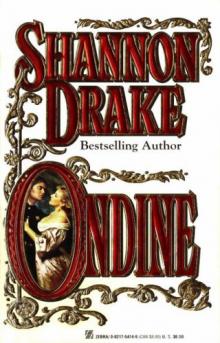 Ondine
Ondine Angel of Mercy & Standoff at Mustang Ridge
Angel of Mercy & Standoff at Mustang Ridge Bride of the Tiger
Bride of the Tiger When Next We Love
When Next We Love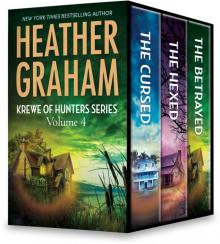 Heather Graham Krewe of Hunters Series, Volume 4
Heather Graham Krewe of Hunters Series, Volume 4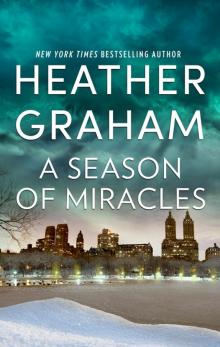 A Season of Miracles
A Season of Miracles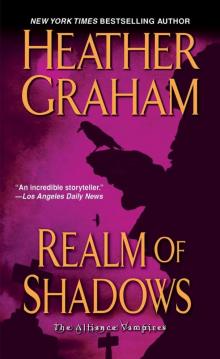 Realm of Shadows (Vampire Alliance)
Realm of Shadows (Vampire Alliance)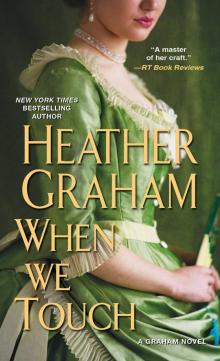 When We Touch
When We Touch Serena's Magic
Serena's Magic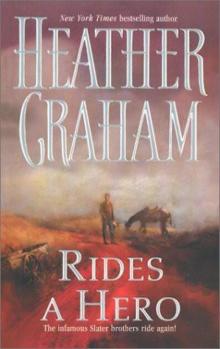 Rides a Hero sb-2
Rides a Hero sb-2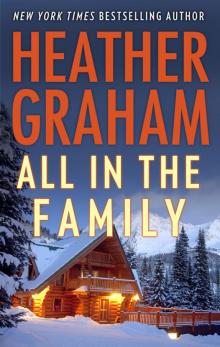 All in the Family
All in the Family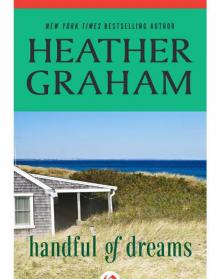 Handful of Dreams
Handful of Dreams A Stranger in the Hamptons
A Stranger in the Hamptons Krewe of Hunters, Volume 2: The Unseen ; The Unholy ; The Unspoken ; The Uninvited
Krewe of Hunters, Volume 2: The Unseen ; The Unholy ; The Unspoken ; The Uninvited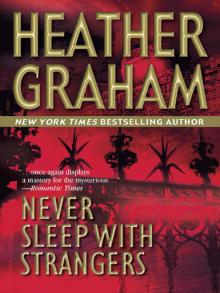 Never Sleep With Strangers
Never Sleep With Strangers Eden's Spell
Eden's Spell A Magical Christmas
A Magical Christmas Forever My Love
Forever My Love King of the Castle
King of the Castle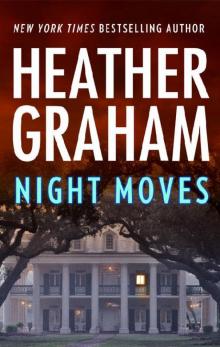 Night Moves (60th Anniversary)
Night Moves (60th Anniversary) The Island
The Island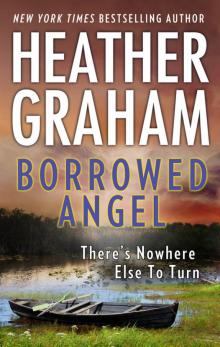 Borrowed Angel
Borrowed Angel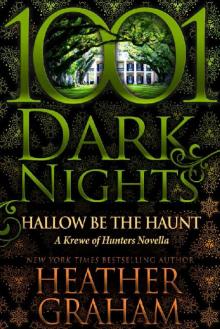 Hallow Be the Haunt: A Krewe of Hunters Novella
Hallow Be the Haunt: A Krewe of Hunters Novella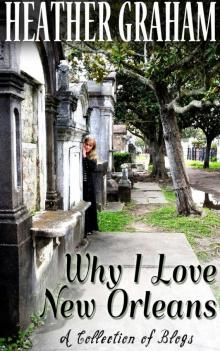 Why I Love New Orleans
Why I Love New Orleans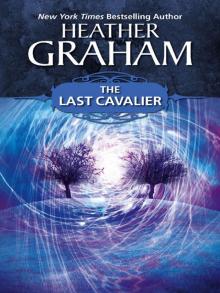 The Last Cavalier
The Last Cavalier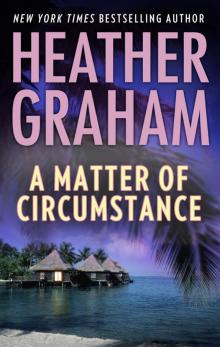 A Matter of Circumstance
A Matter of Circumstance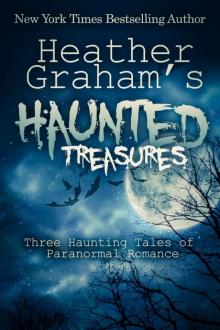 Heather Graham's Haunted Treasures
Heather Graham's Haunted Treasures Tempestuous Eden
Tempestuous Eden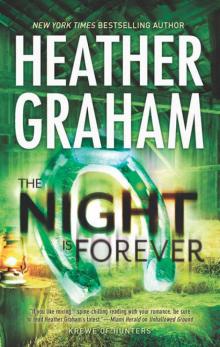 Krewe 11 - The Night Is Forever
Krewe 11 - The Night Is Forever